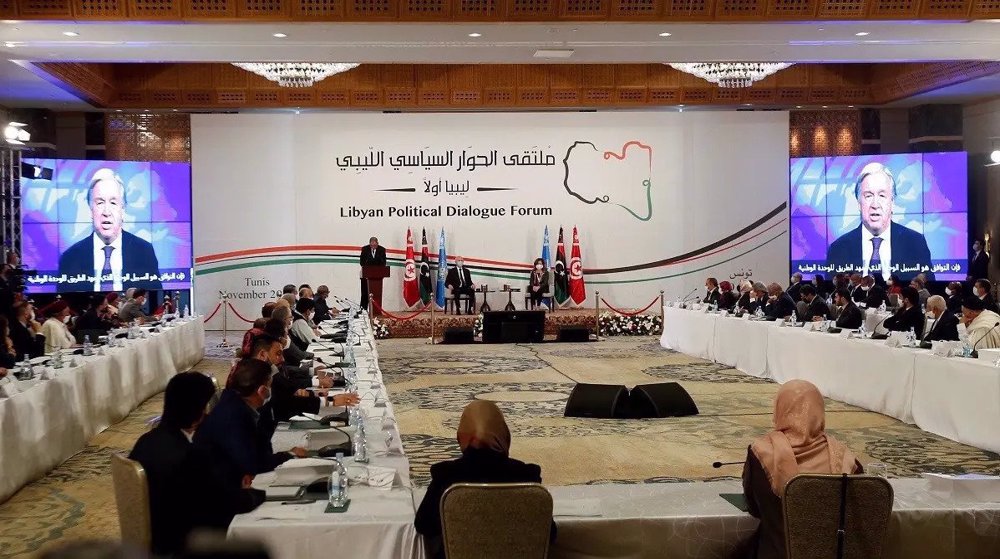Libya’s eastern-based parliament passes no-confidence vote in unity government
Libya’s eastern-based parliament has withdrawn confidence from the country’s unity government, deepening the political crisis just three months before planned national elections.
Abdullah Bliheg, the spokesperson of the Libyan House of Representatives, announced on Tuesday that the eastern-based parliament — dominated by lawmakers loyal to rebel commander Khalifa Haftar — had passed a no-confidence vote in the country's unity government based in the capital Tripoli.
Bliheg said 89 of the 113 lawmakers in the eastern city of Tobruk voted against the Tripoli-based government of interim Prime Minister Abdulhamid Dbeibah, but added that the administration would continue to operate in a caretaker capacity.
Dbeibeh, who took office in February and his unity government was selected through a UN-sponsored dialogue, has a mandate to unify state institutions, improve government services and prepare for the Libyan presidential and parliamentary elections on December 24.
While the UN-led peace process has led to a period of calm, wrangling over electoral laws and powers have complicated the path to a more permanent peace in the North African country.
The High Council of State, the parliament's upper house based in Tripoli, criticized the move on Tuesday, saying that it “rejects the procedure of withdrawing confidence from the national unity government and considers it void for violating the constitutional declaration and the political agreement, and considers everything that results from them null.”
Earlier this month, the speaker of the parliament's lower house in Tobruk ratified an electoral law that was said to be favoring renegade General Haftar.
Critics of the law pointed to a clause stipulating that military officials may stand in presidential polls on condition they withdraw from their posts three months beforehand, which would allow for a presidential run by Haftar, whose rebel forces and militiamen control eastern Libya as well as parts of the south.
The High Council of State said the law had been passed “without a legal vote or consensus,” and called for presidential elections to be postponed for a year.
Haftar had waged a year-long assault on the capital in the west, leaving thousands dead before reaching a formal ceasefire with the Tripoli-based government last October.
The self-styled commander of Libya's rebel forces said last month that his armed militia would not be subordinate to the current Libyan government, claiming that they would only submit to a popularly-elected authority.
Haftar's remarks contradicted his position in February, when he voiced support for the new transitional government and a "peaceful and democratic alternation of power" in Libya.
Years of violence and division began in Libya following the NATO-backed overthrow of former dictator Muammar Gaddafi in 2011.
After the overthrow of Gaddafi, Libya was split between two rival seats of power, namely the internationally-recognized government, and another group based in Tobruk, protected by the rebels.
In March, the transitional government was formed after UN-brokered talks between Libyan factions in Tunis and Geneva, and was supposed to run the country until the December elections.
VIDEO | Rome, Milan host new protests in solidarity with Palestinians
Dec. 21: ‘Axis of Resistance’ operations against Israeli occupation
Spain jurists demand ties with Israel ties be cut
VIDEO | Press TV's news headlines
VIDEO | Iran honors top Science Olympiad medalists
VIDEO | Austrians arrested at Gaza protest in Vienna
10 killed in bus crash in western Iran
VIDEO | One-man-band journalism with Civili











 This makes it easy to access the Press TV website
This makes it easy to access the Press TV website